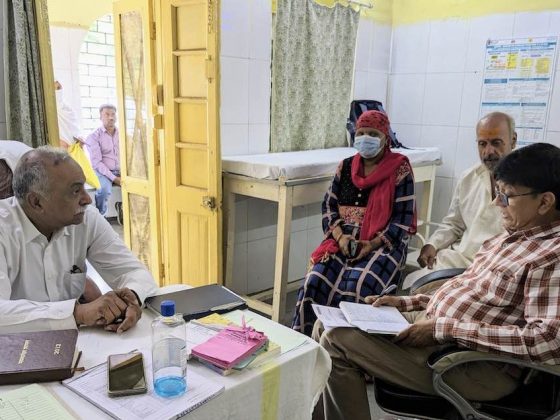Statin use was associated with a lower risk of colorectal cancer, colorectal cancer related mortality, and all-cause mortality in a patient population with inflammatory bowel disease. The Swedish study, published online in eClinicalMedicine, 1 September, found benefits depended on duration of statin use, with a significantly lower risk after more than two years use.
“Our study suggests that statins can prevent colorectal cancer in patients with inflammatory bowel disease which is a high-risk group for this kind of cancer,” says Jiangwei Sun, the corresponding author, from the Department of Medical Epidemiology and Biostatistics, Karolinska Institute, Stockholm, Sweden. “To our knowledge this is the first study to explore the dose–response association between statin use and the risk of colorectal cancer in individuals with inflammatory bowel disease.”
Patients with inflammatory bowel disease (IBD), a chronic gastrointestinal disease with a relapsing-remitting course (including Crohn’s disease, ulcerative colitis, and IBD-unclassified), are at approximately 1.5-fold increased risk of developing colorectal cancer. “Assuming that the majority of CRC [colorectal cancer] in IBD patients occurs as a consequence of chronic inflammation, control of mucosal inflammation may potentially prevent CRC development,” write the authors.
Although statins are primarily prescribed for hypercholesterolaemia, evidence from in vitro and animal studies suggests that they also possess anti-inflammatory, anti-proliferative, pro-apoptotic, and anti-neoplastic effects. “However, evidence from human studies for the potential chemo preventive effect of statin on CRC remains inconclusive,” write the authors.
For the current study, between July 2006 and December 2018, from a Swedish inflammatory bowel disease cohort the investigators identified 5,273 statin users aged greater than 18 years who had been prescribed more than 30 cumulative defined daily doses of statins, including lipophilic statins (simvastatin and atorvastatin) and hydrophilic statins (pravastatin and rosuvastatin).
To establish the cohort, the investigators then undertook a ‘two-step’ matching process. In the ‘direct matching’ step, statin users were individually matched to non-statin users by age at IBD diagnosis (<18, 18 to <40, 40 to <60, and ≥60 years old), by sex, by IBD subtype, and by calendar year of IBD diagnosis (1969–1989, 1990–1999, 2000–2009, and 2010–2018). Then statin users were matched with non-statin users in a 1:1 ratio, using a ‘greedy nearest neighbour’ matching algorithm, allowing matching according to propensity scores. The matching process ultimately yielded a matched cohort of 5,273 statin users and 5,273 non-statin users.
Results, after an average follow-up of 5.6 years, showed 70 patients in the statin group vs 90 in the non-statin group were diagnosed with colorectal cancer (aHR [adjusting for covariates]=0.76, 95%CI 0.61–0.96).
Colorectal cancer prevention benefit was dependent on duration of statin use, with aHR=0.59 (0.25–1.43) for 1 to <2 years use; 0.46 (0.21–0.98) for 2 to <5 years; and 0.38 (0.16–0.86) for ≥5 years use (Pfor trend =0.016).
Additionally, compared with non-statin users, statin users had a decreased risk for colorectal cancer-related mortality (aHR=0.56 [0.37–0.83]) and all-cause mortality (aHR=0.63 [0.57–0.69]).
The number needed to treat to avoid one incident colorectal cancer case was 227, to avoid one colorectal cancer-related death was 200, and to avoid any death was 21, within 10 years after statin initiation.
“The benefits for all-cause mortality were consistently observed regardless of sex, IBD subtype, age at IBD diagnosis, and disease duration, suggesting the benefits of using statin may apply to a broad at-risk population,” write the authors. The benefits for incident colorectal cancer and colorectal cancer-related mortality, they add, were mainly observed in patients with ulcerative colitis, patients diagnosed at age <50 years, and patients with longer disease durations.
The results, according to the researchers, provide the most solid evidence so far that statins could offer an effective prophylactic for colorectal cancer among people with IBD.
“Although further research is needed to define the optimal timing of initiation, exact dose, and minimum duration required to achieve benefits before safely incorporating statin into guidelines for CRC prevention in patients with IBD, our findings indeed provide evidence for the clinical use of statin as a well-tolerated and affordable cancer chemo-preventive agent in patients with IBD,” write the authors.












